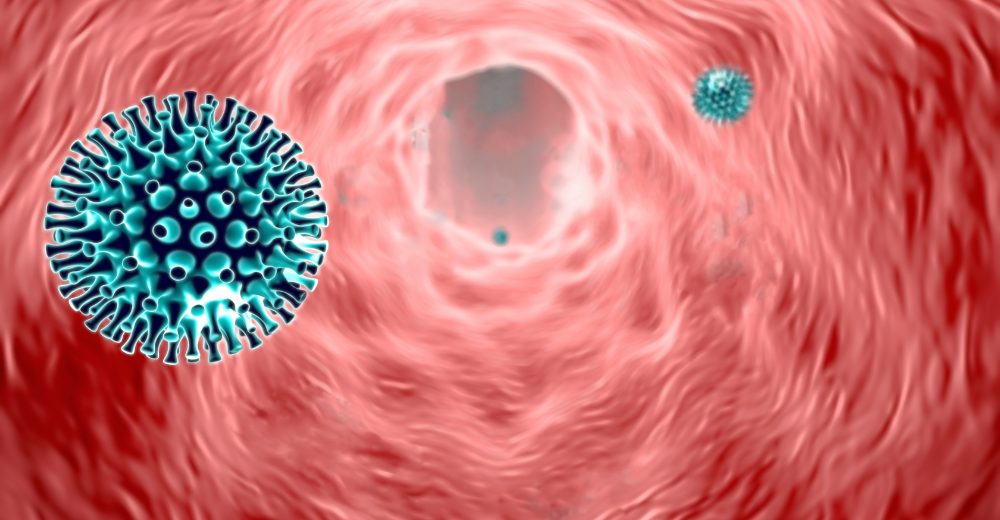What is viral load and why does it matter?
Viral load is a term that refers to the amount of virus in an organism. Scientifically, the term affords a way to quantify the amount of virus in the bloodstream, a place where it can be most easily measured. It turns out that this is an important concept to understand in our current world. An understanding of the basic principles of viral load will lend a better understanding of the policies public health officials are prescribing around COVID-19.
Let’s start with a visual. A small viral load in your bloodstream might look something like this. The blue elements are meant to represent virus particles.
Low viral load in bloodstream.
A larger viral load might look something like this.
Higher viral load in bloodstream.
Following basic steps such as wearing masks, social distancing, washing hands, and avoiding large gatherings can prevent your body from moving from something like the first figure to the second. We will now attempt to fill in some of the blanks for how this may happen.
Consider the analogy of a battle. Imagine the enemy invaders are the virus particles. Your body’s immune cells will fight this invading army, but the numbers of the body’s immune cells that can fight the virus are limited. As this invading army gets larger, in order to stay healthy or alive, you need more defense cells/defense soldiers, better-trained soldiers, or soldiers with more weapons.
If your body is hit with a surge of enemy invaders, you need more or better-prepared defense cells. A surge of enemy invaders is the equivalent of being exposed to someone that is infected that does not wear a mask or being in a room or closed space with multiple people that are infected. This surge can be even worse if the individual transmitting the invaders speaks directly to you, coughs, sneezes, or has close contact with you. Unfortunately, you can’t just snap your fingers and have more defense cells or soldiers.
Now, also take the case of being in an area where the enemy invaders are there for a long time. The longer you are in the same space, the more chance you have of coming into contact with the enemy invader. Also, repeated exposures can exhaust the defenses that you have. For short exposures, your body’s troops have a better chance of holding the line. Over time, however, your body’s soldiers become exhausted and cannot last.
Many things can affect the strength of the soldiers that defend you. Some soldiers are just naturally better fighters than others, and we don’t always understand why. This partially explains why some people get sick and some don’t with the same exposures. It may just be something in their genes or something from their childhood. Some soldiers are just plain tired, for so many different reasons.
In the future, some troops will be trained for battle with vaccinations. This will be a game-changer in the battle. But think of it like this, if we begin training in December, only some areas are going to get training just because we do not have enough people that can train the troops. It may be months before every area can have trained troops.
Don’t make your body or someone else’s body fight battles it does not have to.
In general, you can reduce your chance of losing a battle with COVID-19 by:
Avoiding large gatherings, wearing masks, social distancing, washing your hands.
(Reducing the number of enemy invaders one is exposed to in a short period of time.)
Gathering for only short periods of time when you must gather. When you must go in public, go for short periods of time. (Reducing the amount of time that you are exposed to enemy invaders.)
Getting sleep, eating well, exercising. (Building up the strength of your defense troops by keeping them healthy and rested.)
Getting a vaccine when it is available to you. (Getting your troops training for battle when training is available.)
Other weapons may be available in the future, but for now, the effect of medications and other treatments is limited. We need to hold the line until the vaccine is available. Think about ways of eliminating or reducing your viral load as you go through your days, for yourself and those around you.
Kimberly Gandy, M.D., Ph.D., is a Northwestern/Stanford/Duke trained physician-scientist with over 25 years of experience at the intersection of science, medicine, and technology.



